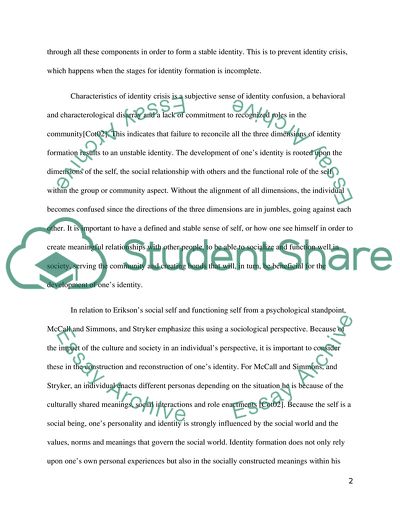Cite this document
(The Psychological and Sociological Viewpoints on the Creation of One's Coursework, n.d.)
The Psychological and Sociological Viewpoints on the Creation of One's Coursework. Retrieved from https://studentshare.org/social-science/1735861-the-psychological-and-sociological-viewpoints-on-the-creation-of-ones-identity
The Psychological and Sociological Viewpoints on the Creation of One's Coursework. Retrieved from https://studentshare.org/social-science/1735861-the-psychological-and-sociological-viewpoints-on-the-creation-of-ones-identity
(The Psychological and Sociological Viewpoints on the Creation of One'S Coursework)
The Psychological and Sociological Viewpoints on the Creation of One'S Coursework. https://studentshare.org/social-science/1735861-the-psychological-and-sociological-viewpoints-on-the-creation-of-ones-identity.
The Psychological and Sociological Viewpoints on the Creation of One'S Coursework. https://studentshare.org/social-science/1735861-the-psychological-and-sociological-viewpoints-on-the-creation-of-ones-identity.
“The Psychological and Sociological Viewpoints on the Creation of One'S Coursework”, n.d. https://studentshare.org/social-science/1735861-the-psychological-and-sociological-viewpoints-on-the-creation-of-ones-identity.


